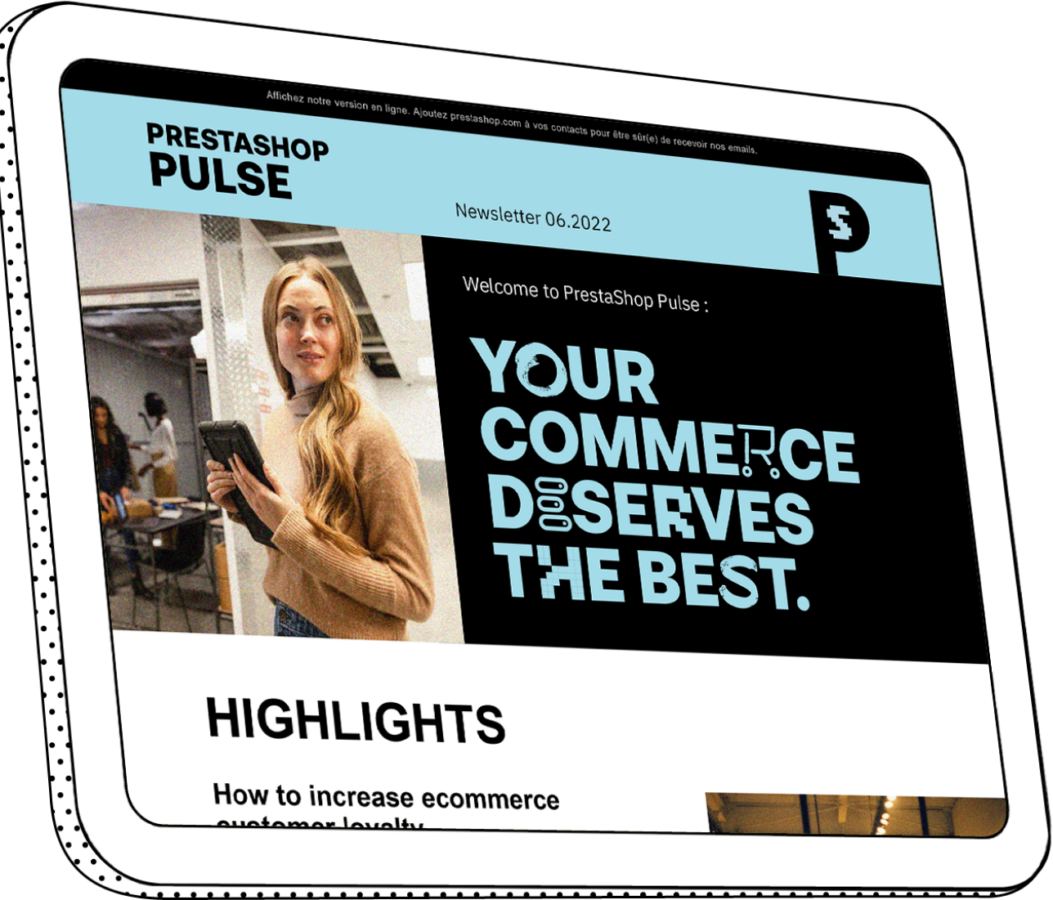
How to start your ecommerce business ?
The booming industry of ecommerce, offers lots of opportunities for entrepreneurs to build new revenue streams. The world of ecommerce is a vast one, though, and it’s not exactly obvious how to build a digital business from the ground up.
So, if you're like many creative types and business-minded folk who want to sell their products and services online but feel overwhelmed by the seemingly endless list of ecommerce terms, then you're in the right place. Let's go over the seven most important things you need to start your ecommerce business in 2022.
#1: A domain name
If you're thinking of starting an ecommerce business, you need a website through which you can sell your wares. That means you'll need to register a domain name to promote your online shop, which should be rich with keywords relevant to your business and SEO strategies.
It's best to register a new domain to promote your business since the vast majority of new domains have short names, something that Google's crawler prefers over longer domain names. Plus, new domains offer extensions that are typically more meaningful to your customers and better reflect your brand.
Check out our business name generator to find your business name in seconds !
#2 Hosting
To be able to sell online, you will need a hosting platform that has been optimized specifically for ecommerce. Hosting has a massive impact on your site, such as with its speed and security. Most customers today literally expect a page to load in less than two seconds, so make sure that you select a hosting platform that can handle the volume of traffic spikes and search engine crawling for links, you should be fine. Also look for a hosting platform that encrypts your site with HTTPS and encrypting customer financial data by ensuring compliance with PCI (Payment Card Industry) standards.
#3: A platform
Once you've chosen a (preferably) new domain name, it's a good idea to settle on an ecommerce platform. Your platform provides the groundwork on which you can develop your digital shop, and it should ideally offer you options to personalize your design as well as accept online orders and digital transactions.
Before you settle on an ecommerce platform, consider whether you want to link your online shop to other social media platforms that you manage. Linking your ecommerce store to your social accounts can go a long way toward strengthening your employer branding strategy and can make it easier to funnel prospective clients toward the products and services you offer online.
#4: A catalog
Your catalog of products and services is the bread and butter of your online merchandising. Your catalog allows you to showcase the very best of what you have to offer -- make it easy for customers to find what they're looking for by organizing your products by categories and making your catalog design navigable. We recommend that you take things a step further by including product descriptions whenever possible so that you can make your user experience as intuitive and enjoyable as possible.
#5: Legal clearance
If you don't have much experience operating a digital business, you may not know that there are several legal requirements you need to adhere to. First thing's first: you'll want to register an official business trademark to ensure that the name you want to use for your store is available for use.
Depending on where you're located, you may also need to apply for a license to conduct business online; you'll want to double-check with requirements at the local as well as state level to confirm whether you need a license. While you’re at it, remember that you need legal proof of how you’re paying your employees, so invest in an invoicing solution that makes it easy to report your employee payments and that comes with crucial features such as automatic payment set up for recurring invoices and invoice organization tools with drag-and-drop line items.
#6: A payment system
Managing online transactions would be difficult if there weren't ways to organize your payments in one place. Thankfully, payment systems like PrestaShop Checkout make it easy to streamline your customer experience and digital transactions with an intuitive checkout interface that securely manages multiple payment types. With PrestaShop Checkout, you can build customer trust in your brand by improving their purchasing experience, and you can start earning rewards as you begin to process a larger number of online sales.
#7: Shipping options
Last but not least, you'll need to invest in shipping options to ensure that your customers get what they purchase in a timely manner. As an ecommerce business owner, you need to select a shipping partner (these typically include USPS, FedEx, UPS, to name a few) that can consistently complete quick turnarounds for the digital transactions you process. Your shipping process is vital to rounding out your customer experience, so don't skimp on this step when it's time to set up your online shop.
Conclusion
Starting an ecommerce business can seem tricky at first, but if you follow the steps we’ve outlined above, you should have your new shop up and running in no time. There’s never been a more exciting time to start an online store, so if you’re confident in your brand and the products and services you offer, it may be time to take the plunge into the world of ecommerce.





